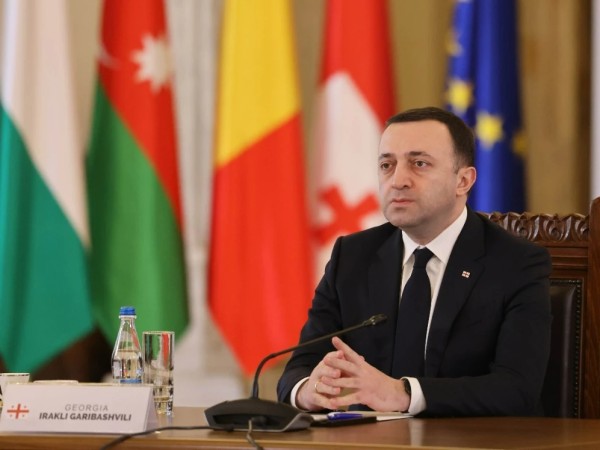The government of Australia is spending almost A$24m (US$18,625,560) to convince its citizens to accept a COVID vaccine. Cambodia plans to spend more than US$20.5 million on vaccination campaigns. Over £23 million funding has been allocated to 60 councils and voluntary groups across England as of Jan 2021 to expand work to support those most at risk from COVID-19 and boost vaccine take-up.
White House launched a US$250 million ad campaign to fight vaccine hesitancy. As for Georgia, it seems the country decided to adopt a no-spend year challenge and save on vaccination campaign. You get what you pay for - communications specialist reminds.
White House launched a US$250 million ad campaign to fight vaccine hesitancy. As for Georgia, it seems the country decided to adopt a no-spend year challenge and save on vaccination campaign. You get what you pay for - communications specialist reminds.
BM.GE has asked the Ministry of IDPs from the Occupied Territories, Labor, Health and Social Affairs of Georgia about the budget allocated for advertising campaign of vaccination in the country and already spent sums. Our questions were forwarded to the National Center for Disease Control and Public Health (NCDC), pursuant to which from January 2020 till present all advertising activities were prepared and broadcasted free of charge.
The total number of vaccinated persons in Georgia, a country of 3.7 million population, as of May 17 amounts to 89,260. Vaccination has started in the country on March 15. After over two months, the country has only 14, 643 fully vaccinated citizens.
“We are currently witnessing a combination of chaotic, irrational, and unplanned activities in Georgia, which I cannot call a vaccination campaign because the campaign is a set of long-term activities intended under one idea and message, which has a specific target group and has a clearly defined goal. We only see arbitrary activities by organizations and individuals that give us ambiguous and less effective results,” Eldar Pirmisashvili, Founder of Strategic Communications Agency Peritus Group & Influencer.ge, told BM.GE.
“If communication with one person will cost the government GEL 10 today, it will be forced to spend at least four times more tomorrow, because dealing with myths and cemented negative thoughts will become more and more difficult,” says Pirmisashvili.
“What if they developed a vaccine and nobody took it? – the question has been placed in November 2020 by Kevin McCauley, editor-in-chief at O'Dwyer's, who has about forty years of experience in PR, lobbying, advertising, and marketing. “PR can be the difference-maker and the second most effective weapon against the virus,” said McCauley adding “it will be up to PR to persuade Americans to take their COVID-19 shots.”
Work on the advertising project in the US started last fall, but the Biden administration has been waiting to launch the education campaign until there was an increase in vaccine supply. Currently, more than 59 percent of adults in the US have received at least one shot. The US President Biden set a goal on May 4 of reaching 70 percent of adults by July 4. It is obvious that without a proper information campaign the US would not manage to get these results.
While estimating, which information source is more or less acquired in Georgia, Pirmisashvili says that TV and social network are mostly adopted, however, since there are no specific segments, their target groups, and tailored messages and communication, it is less effective and only acts as a "bubble" for those friends/acquaintances who share each other's views. “Meanwhile, people need a reliable and thoughtful, verified source, consistent and regular information which we generally call a communication campaign. Television only replicates what has happened, which is good but insufficient. The campaign has to be spread out in a very punctual and intense manner, the photo or video address of ten people only has the wrong effect, as if the campaign goes successfully.”
“In fact, promotion campaign has been delayed in Georgia. Direct problems related to spreading information should be properly identified. In this regard, analysis and sociological researches are conducted abroad, but not in our country. Also, the number of people unwilling to accept vaccines should be determined, what myths exist and how to dispel them – all these should be topics of discussions of communication specialists and experts and a large-scale and targeted campaign should be developed consequently,” Pirmisashvili told BM.GE.















